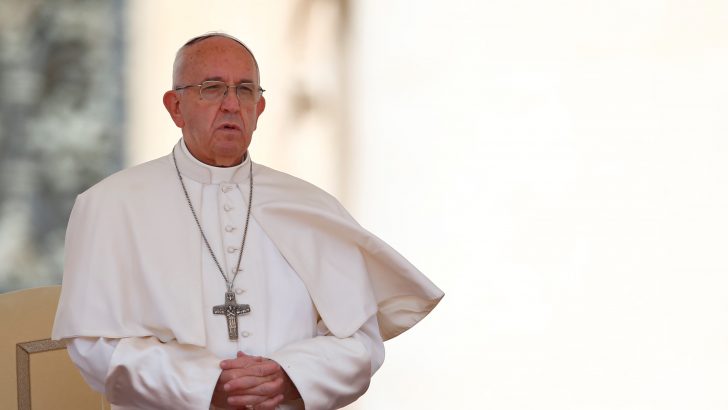Pope in Ireland
Pope Francis has not fully realised his ambitious reform agenda, writes Michael Kelly
According to a leaked diary – which no-one has disputed – Cardinal Jorge Bergoglio came runner-up in the conclave that elected Benedict XVI in 2015. Despite that, few people considered him a candidate for the papacy in 2013, the conventional wisdom being that his moment had passed.
The members of the College of Cardinals had a different idea. The Argentine Jesuit had quietly impressed many of his colleagues as various synods and meetings in Rome.
It was a dramatic eve-of-conclave speech that convinced many cardinals that the Archbishop of Buenos Aires was the man best suited to the Petrine ministry at this juncture and so he was elected with a strong mandate for reform.
When the cardinals met in March 2013, it was against the backdrop of Benedict XVI becoming the first Pope to resign in some 600 years. The Vatican was mired in controversy and the Pope’s butler was in prison having admitted to stealing and leaking documents from Benedict’s private office.
The scandal-ridden Vatican Bank was causing huge embarrassment and the Holy See’s banking system was temporarily knocked off the international grid due to fears that it was a conduit for laundering money. At the same time, the Italian press was abuzz with rumours about a so-called ‘gay lobby’ within the Vatican influencing decisions.
Bowed by age and the weight of office, Benedict was isolated and chose to take the humble step of standing aside.
Masterful
As the cardinals met in Rome for their pre-conclave meetings about the state of the Church, it soon became apparent that there was a piercing desire for reform. According to Cardinal Jaime Ortega, “Cardinal Bergoglio made a speech that seemed masterful, insightful, engaging and certain”.
On the first point on evangelisation, Cardinal Bergoglio said “the Church must take leave of itself and go to the peripheries” but not just in the geographical sense “but also the existential sense, manifested in the mystery of sin, pain, injustice and ignorance , among others”.
The second section characterised the institution as a “self-referential” Church and self-centred in a kind of “theological narcissism”.
In point three, Bergoglio criticised “the worldly Church living in itself, of itself, for itself.” According to Cardinal Ortega, the idea of the Pope is that the institution must find a balance in “the changes and reforms that have to be undertaken”.
The fourth point reported by Cardinal Ortega indicates that the Pope, not knowing that he would be elected, said he expected a top pastor of the Church of Rome “a man who, from the contemplation of Jesus Christ…helps the Church to emerge from itself to arrive at the existential limits”.
Francis very quickly set about an ambitious reform agenda. He immediately appointed teams of international consultants to advise on the reform of the Holy See’s finances.
There were major personnel changes both at the Vatican Bank (the Institute for Works of Religion) and the Administration of the Patrimony of the Holy See (APSA). The reforms very quickly returned confidence from international regulatory bodies and lots of suspected bogus accounts were cancelled.
On the wider reform of the Roman Curia, the Pope convened a committee of senior cardinals later dubbed by commentators as the C9. The body has met regularly since to advise the Pontiff and is reportedly nearing a final draft of an apostolic constitution to reform the Curia.
Going back to the papacy of John Paul II, it was long felt that issues like the laity and family were relegated at the Vatican since they were managed by less powerful Pontifical Councils rather than the congregations which oversaw things like the Doctrine of the Faith, Clergy and Bishops.
In a bid to remedy this, the Pope created what to many is a new super dicastery that for laity, family and life headed by Dubliner Cardinal Kevin Farrell. At the same time, Francis breathed life into his social teaching by creating another dicastery to deal specifically with these issues.
The Dicastery for Promoting Integral Human Development brought together the work of the Pontifical Councils for Justice and Peace, Pastoral Care of Migrants and Itinerant People, Pastoral Assistance to Health Care Workers, and the charitable body ‘Cor Unum’.
A move met with less enthusiasm was the decision to bring all the Vatican’s communications arms under one umbrella headed by Msgr Dario Viganò. Msgr Viganò resigned earlier this year after he had ordered a letter from Benedict XVI about the writings of Pope Francis to be partially blurred thus taking the visible lines out of context.
Staff at the new communications outfit – which brought together amongst other things the Vatican Television Centre, Vatican Radio, the internet office and the daily newspaper – have complained of difficult working conditions under the new dispensation.
There have been frequent stories in the Italian press of staff feeling under pressure to resign.
In ordering the communications overhaul, Pope Francis insisted that no-one should lose their job, instead making savings as people retire. However, several former staffers have spoken of an atmosphere which makes it impossible to stay.
Five years on, Francis has certainly changed the mood music in Rome. His stinging critiques of the Roman Curia, usually delivered around Christmas, have become legendary.
Critics will point to the fact that there is little substantial change. It’s also concerning to people keen on reform that five years on the apostolic constitution – the document meant to paint the blueprint for curial reform – has still not emerged.
Francis has transformed the standing of the Church internationally and his approval ratings remain strong both amongst Catholics and in general views towards world leaders. On the issue of reforms, however, it’s probably a case of a lot done, more to do.


 Michael Kelly
Michael Kelly